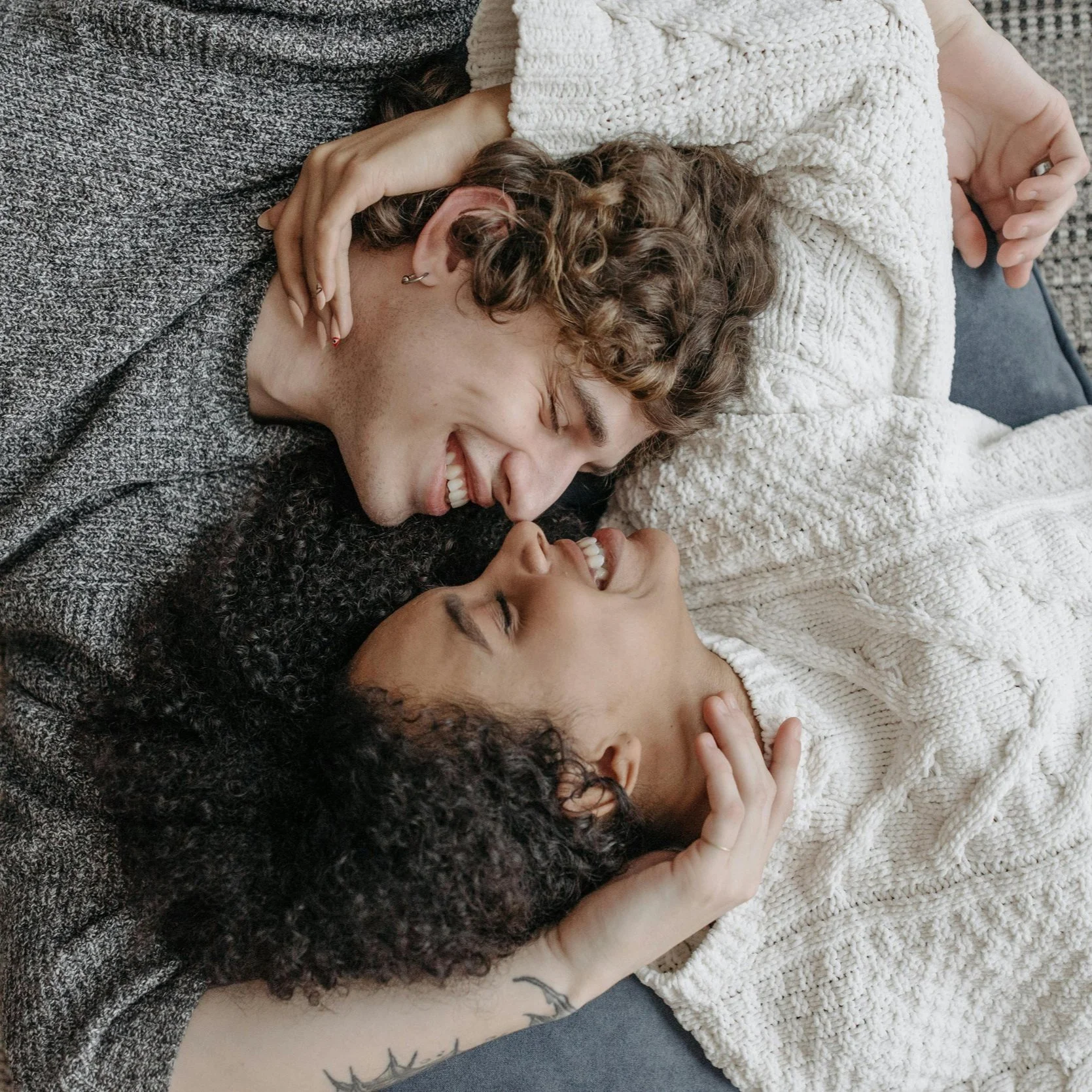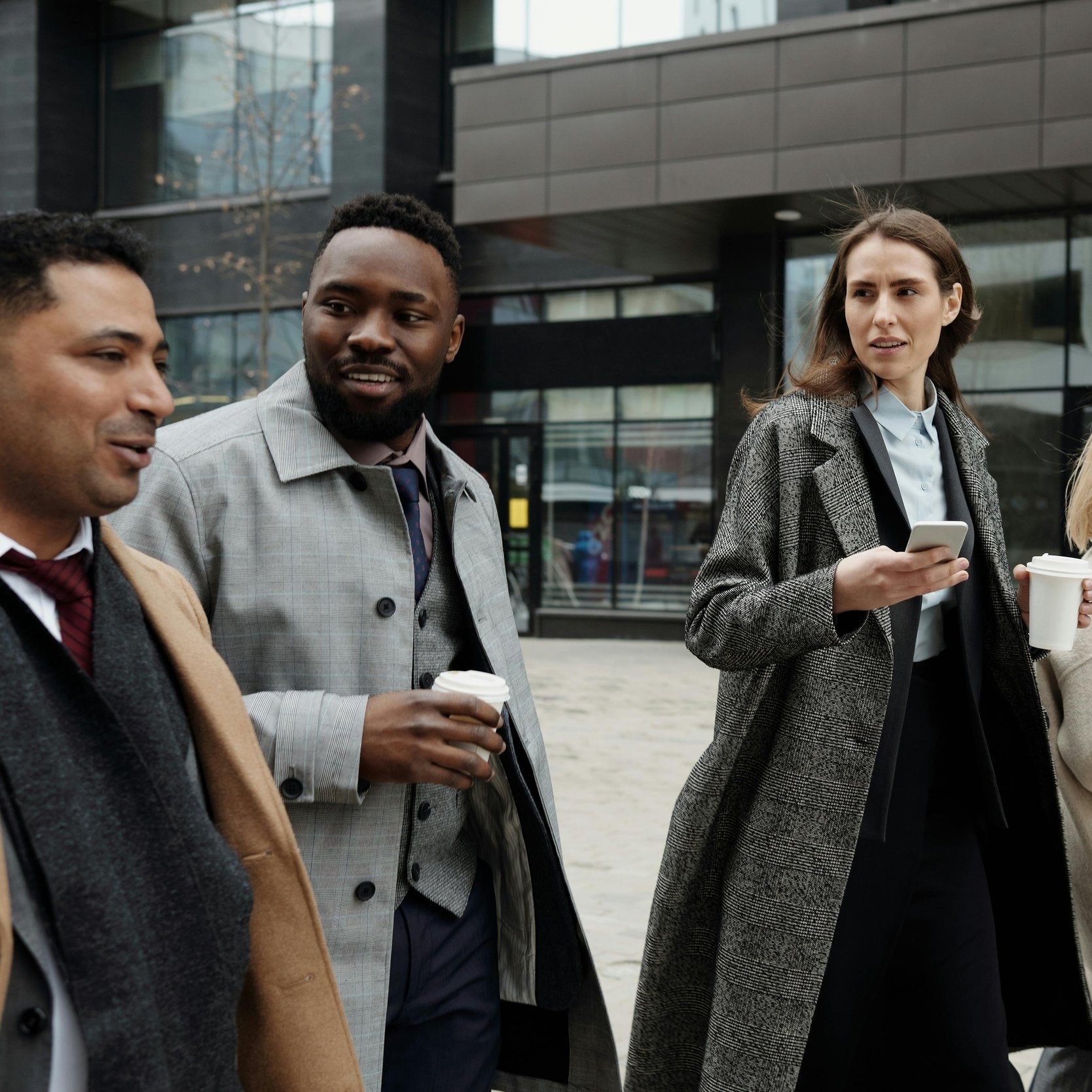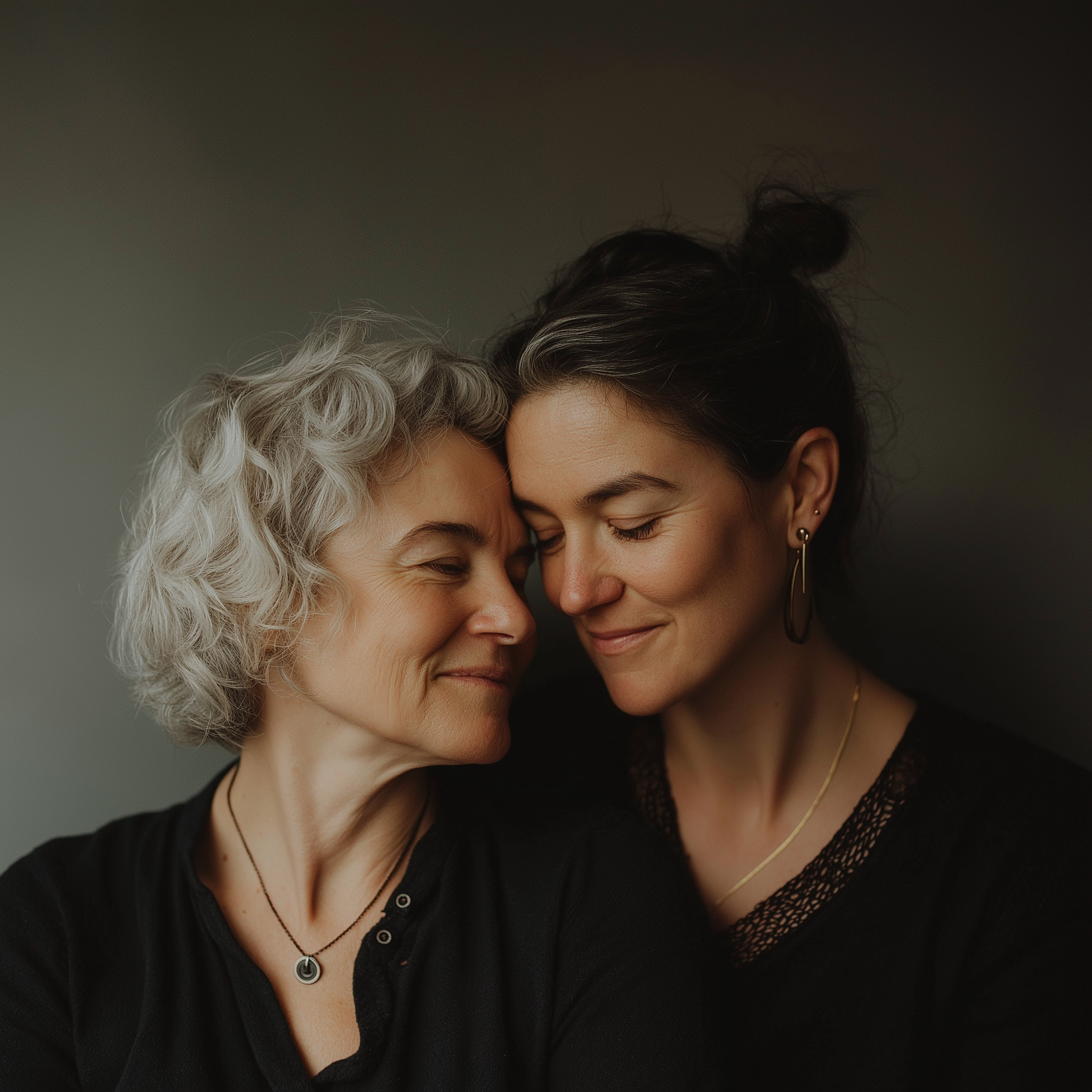Five Ways Internalized Homophobia is Ruining Your Relationship
"All the water in the world cannot sink a ship unless you let it inside" is a phrase often used to encouraged resistance to homophobia, racism, and other forms of prejudice. And while it's a great sentiment, it's not that simple. A LGBT therapists, we know we can't live in a society that discriminates against us and not have it effect us. It also affects our closest, most sacred relationships. Here are subtle ways it might be showing up and what to do about it.
Understanding Internalized Homophobia
LGBTQ+ people absorb negative attitudes and beliefs about their orientation or gender identity. This internalization can lead to self-doubt, shame, and a diminished sense of self-worth. It impacts how we perceive ourselves and interact with our partners.
Internalized homophobia can silently undermine queer relationships. It can create tension and conflict that can be difficult to identify and address. For many LGBTQ+ people, internalized homophobia is a byproduct of growing up in a homophobic society. When these negative beliefs are internalized, they manifest in ways that damage relationships. An otherwise loving person may push their partner away or do things to sabotage a beautiful bond. Recognizing these patterns is the first step toward healing and building a stronger connection with your partner - and yourself.
How Internalized Homophobia Affects Relationships
Internalized homophobia can create barriers to intimacy, trust, and communication in relationships. Here are five ways internalized homophobia might be affecting your partnership:
1. Avoidance of Public Affection
Many LGBTQ+ people feel uncomfortable expressing affection to their partner in public, fearing judgment or backlash. This discomfort can lead to a reluctance to engage in public affection, such as holding hands or kissing, even when it feels natural and loving. There are some environments where showing affection is actually dangerous and should be avoided. But we've found that many people overestimate the perceived danger when they have internalized homophobia.
How It Affects Your Relationship
Creates Distance. Avoidance of affection can create a sense of distance between partners, as one or both may feel rejected or unloved.
Reinforces Shame. It reinforces the idea that our love is something to be hidden or ashamed of. This can damage self-esteem and relationship satisfaction.
What to Do
Communicate. Discuss your feelings and fears with your partner to understand each other's perspectives. Make the goal understanding, not finding a solution.
Evaluate Actual Danger. In some environments, there may be actual danger, and we do not encourage you to jeopardize your safety. But be really honest about how real the threat of danger is.
Challenge Negative Beliefs. Recognize that your love is valid and deserving of expression, regardless of societal attitudes.
Small Steps. Take small steps toward expressing affection in public, starting in environments where you feel safe and supported. For example, can you hold hands in the dark of a movie theater? Dance together at a gay club? Kiss goodbye in the car at the airport?
2. Difficulty Communicating Needs
Internalized homophobia can lead to difficulties in communicating needs and desires with your partner. This is often due to fear of judgment or rejection.
How It Affects Your Relationship
Unmet Needs. When needs are not communicated, they often go unmet, leading to frustration and resentment.
Misunderstandings. Lack of communication can result in misunderstanding and conflict. This creates emotional distance that can be very painful.
What to Do
Self-Reflection. Take time to reflect on your needs and desires, recognizing their validity and importance.
Practice Vulnerability. Practice being vulnerable with your partner, sharing your thoughts and feelings openly and honestly.
Seek Support. Consider seeking support from a therapist who specializes in LGBTQ+ issues to develop healthier communication skills.
3. Fear of Intimacy
Internalized homophobia can create fear and anxiety around intimacy, both emotional and physical. This fear may stem from a belief that queer relationships are inherently flawed or doomed to fail. It may impact libido or response.
How It Affects Your Relationship
Emotional Distance. Fear of intimacy can create emotional distance between partners, preventing the deep connection necessary for a fulfilling relationship.
Avoidance of Closeness. It can lead to avoidance of physical closeness, impacting sexual intimacy and affection.
Shame and Feelings of Rejection. When your partner is turned down for sex, they may not know it's because of an emotional reaction or association with sex unrelated to them. They may feel undesireable or unwanted, which creates shame in them as well.
What to Do
Identify Positive LGBT Relationship Role Models. Look to people in your real life, or public figures. What do you think their emotional and physical intimacy looks like with their partners? Do you think they feel shame or uncertainty? What makes them different from you? By normalizing LGBT relationships that look similar to yours, you can decrease your internal stigma.
Challenge Beliefs. Work to challenge negative beliefs about queer relationships, recognizing their worth and potential for success.
Communicate With Your Partner. While the source of your discomfort with intimacy may be obvious to you, it may not be to your partner. Explain to them that your difficulty isn't related to them, and that you find them so lovable and attractive. Demonstrate goodwill and intention to address this barrier to intimacy.
Build Trust: Focus on building trust and emotional safety with your partner, creating a foundation for intimacy.
Take Steps To Be More Vulnerable. Allow yourself to be more vulnerable with your partner. Pace yourself, gradually sharing fears and insecurities and seeing how they are recieved. If they are received with kindness and love, it's safe to proceed. If they are not, that's a red flag.
4. Sabotaging LGBT Relationship Success
Internalized homophobia can lead to self-sabotaging behaviors, such as pushing partners away or creating conflict. These behaviors often stem from a belief that one does not deserve love or happiness.
How It Affects Your Relationship
Instability. Self-sabotage can create instability and chaos in the relationship, preventing it from thriving.
Erosion of Trust. Repeated conflicts and disruptions can erode trust and diminish relationship satisfaction.
Exhaustion From The Emotional Roller Coaster. The drama that internalized homophobia can create is exhausting.
What to Do
Identify Patterns. Recognize and identify patterns of self-sabotage, understanding their root causes and impact on the relationship.
Practice Self-Compassion. Cultivate self-compassion and self-acceptance, recognizing your worthiness of love and happiness.
Seek Therapy. Consider seeking LGBT therapy to address underlying beliefs and develop healthier coping strategies. You don't deserve to have your relationship and energy depleted by it. Work with an LGBT therapist to identify self-defeating behaviors.
5. Internalized Shame
Internalized homophobia can lead to a deep sense of shame about your identity and relationships. This shame can manifest as self-criticism, negative self-talk, and a reluctance to live your life fully.
How It Affects Your Relationship
Negative Self-Perception. Shame can lead to a negative self-perception, impacting how your see yourself within the relationship.
Negative Relationship Patterns. People who do not view themselves as worthy of love and partnership may pursue connections that are unhealthy. They may find themselves in relationships that are unstable, toxic, or abusive. They may make too many compromises for partnership because they don't believe they deserve better.
Barrier to Authenticity. Shame can create a barrier to authenticity, preventing people from expressing themselves and their love.
What to Do
Acknowledge. Acknowledge and validate your experiences and emotions, recognizing their legitimacy and impact on your life.
Find Community. Seek out supportive communities and spaces that affirm and celebrate LGBTQ+ identities.
When LGBT Couples Therapy Might Be a Good Idea
If internalized homophobia is affecting your relationship, couples therapy can be a good idea. A trained LGBT couples therapist can help both partners understand the impact of internalized homophobia on their relationship. They can also provide tools and strategies to address these challenges.
Benefits of LGBT Couples Therapy
Structure and Containment. Nobody likes tough conversations that start abruptly and go one for hours and hours. It feels overwhelming and rarely results in mutual satisfaction. Having the weekly structure of therapy with a neutral third party facilitating can make hard conversations go a lot smoother. The therapist can help stop negative patterns and offer alternative approaches. They can coach and reflect in a way that a partner can't.
Understanding and Empathy. Therapy can foster greater understanding and empathy between partners. This helps them navigate complex emotions and dynamics.
Improved Communication. A couples therapist can teach effective communication skills that promote openness and understanding.
Healing and Growth. LGBT therapy provides a safe space for healing and growth. For couples, it allows partners to work through internalized homophobia and build a stronger, more resilient relationship.
LGBT Couples Therapy In California
Internalized homophobia can silently impact relationships, but it doesn't have to define them. You and your partner can cultivate a more loving, supportive connection. If you're considering LGBT couples therapy to address these challenges, our therapists are here to help. We offer services for lesbian couples counseling, LGBT couples therapy for those in Los Angeles and San Francisco seeking support for relationship issues. Schedule a consultation and begin your journey toward healing and connection.























